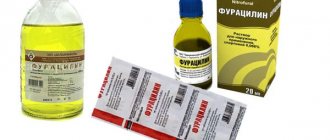In this article
Vitamins:
- A (retinol)
- C (ascorbic acid)
- B1 (thiamine)
- B2 (riboflavin)
- B12 (cyanocobalamin)
- E (tocopherol)
- R (rutin)
- D (calciferol)
List of popular vitamin complexes for children's vision:
- "Polivit Baby"
- "Pikovit"
- "Vitrum kids"
- "Vitrum Vision"
Dietary supplements to improve children's vision:
- "Alphabet. Our Baby"
- "Alphabet Optikum"
- "Blueberry Forte"
- "Strix Kids"
In the modern age of televisions, computers and smartphones, the load on children's vision has increased manifold. As the child grows up, the situation is aggravated by the intense rhythm of schooling. All this leads to deplorable statistics - more than 30% of schoolchildren and 20% of preschool children suffer from vision problems.
To protect a child’s eyes and reduce the risk of developing myopia, farsightedness and other pathologies of the visual organs, ophthalmologists recommend taking special vitamin complexes.
What vitamins are essential for eye health?
To choose the right vitamin complex, you need to know which vitamins have a positive effect on visual health:
A (retinol) - is involved in most visual processes, affects visual acuity, strengthens the cornea. With its help, we see well in twilight and darkness, and quickly respond to light stimuli or color contrasts. Fatty fish, dairy products, parsley, spinach, rowan, carrots and liver contain a lot of retinol.
C (ascorbic acid) - many parents know that ascorbic acid improves immunity. But it also strengthens the eye tone, stimulates the regeneration of the cornea, and reduces the risk of glaucoma and cataracts. Ascorbic acid restores the permeability of capillary vessels, supports blood circulation and prevents hemorrhages, and is involved in saturating the eyes with oxygen. The richest natural sources of ascorbic acid are sweet paprika, greens, citrus fruits, black currants, and sea buckthorn.
B1 (thiamine) - is responsible for the normal state of the pupil and the high-quality transmission of nerve impulses from the brain to the visual organs, normalizes intraocular pressure, and prevents the development of glaucoma. Thiamine is present in wholemeal flour, cereals, liver, and bran.
B2 (riboflavin) - affects the development of the visual parts of the brain, the normal functioning of the pupil, improves color perception and strengthens the walls of capillaries. Riboflavin is found in most common foods, and its deficiency is often due to impaired metabolism.
B12 (cyanocobalamin) - supports blood circulation and stabilizes the functioning of nerve fibers in the eyes. Contained exclusively in products of animal origin - milk, eggs, fish, liver.
E (tocopherol) - prevents retinal detachment and strengthens capillary vessels. Its natural sources are unrefined vegetable oil, nuts, and cereals.
P (rutin) - strengthens the walls of blood vessels and reduces the fragility of capillaries. Rutin is not produced by the human body, so it is important to ensure its supply from the outside. Citrus fruits, rose hips, cherries, buckwheat, and green salad are rich in vitamin P.
D (calciferol) – stimulates the immune system of the eyes, protects against inflammation of the cornea. Contained in fish oil, egg yolk, and is also actively formed under the influence of sunlight.
Eye vitamins for children
The following nutrients are of greatest importance for the prevention of childhood ophthalmological diseases and improvement of the situation when vision problems have already arisen:
Vitamin A. It is needed to maintain visual acuity, the ability to see well in the dark and twilight, and is necessary as protection against infectious agents. Its disadvantages are said to be: flaky skin and dry mucous membranes, poor vision at night. Vitamin A is rich in carrots, liver, broccoli, eggs, and milk.
Vitamin B2 (riboflavin) is necessary for the eyes’ resistance to high visual loads, better adaptation to darkness, and good visual acuity. Its deficiency is noticeable with frequent inflammation of the oral mucosa and cracks in the corners of the lips, decreased appetite, headaches, and pain in the eyes. Vitamin B2 is found in large quantities in meat and dairy products, yeast, and leafy vegetables.
Vitamin C (ascorbic acid). Its main purpose is to protect the body from free radicals and infectious agents. A lack of vitamin C is indicated by bleeding gums, prolonged non-healing of wounds, and a general decrease in immunity. Rich in vitamin C: strawberries and black currants, rose hips, citrus fruits, leafy vegetables and bell peppers.
Vitamin D (calciferol). It ensures the absorption of calcium and phosphorus, which are necessary for strong bones and the prevention of rickets. A lack of vitamin D may be indicated by frequent bone fractures and rickets. This vitamin is one of the few that is synthesized by the body, and its additional sources can be egg yolks and fatty fish fillets.
Vitamin E helps neutralize and remove free radicals. If it is insufficient, frequent bleeding may occur in the body. Among foods rich in vitamin C are vegetable oils, nuts, and whole grains.
| Anthocyanin Forte | Lutein forte | Vitalux Plus | Askorutin |
Microelements for acute vision in children
In addition to vitamins, microelements help support children's vision:
- beta-carotene is provitamin A, which accumulates in the eye tissues and is converted into the corresponding vitamin as needed;
- lutein is a substance that strengthens the retina and lens; it prevents negative age-related changes, protects the lens from clouding;
- lycopene is a microelement that has a high antioxidant effect, protects the choroid, and prevents the development of cataracts;
- Zeaxanthin is a substance responsible for the normal functioning of the fundus of the eye.
Zinc and omega-3 and omega-6 essential fatty acids play a vital role in ensuring clear vision. Zinc promotes the absorption of retinol, preserves the structure of the optic nerve and prevents the appearance of cataracts. Acids protect the cornea from drying out and ensure normal outflow of intraocular fluid.
Useful vitamins and microelements
Adults and children need the following microelements and vitamins:
- Vitamin A. To compensate for its deficiency, you need to eat more colored vegetables, fruits and berries. The body should receive 900 mcg of retinol per day.
- Vitamin B1. Responsible for transmitting impulses from the brain to the eye via the optic nerve. The vitamin is present in seafood, fish, bread, and nuts. The daily intake is 1.6 mg.
- Vitamin B 12. Positively affects the functioning of the ocular nervous tissue. The vitamin is present in seafood, fish, meat, eggs, and liver. You need to consume 3 mcg per day.
- Vitamin C. Has a positive effect on blood circulation, strengthens capillaries, restores eye tissue, and reduces the likelihood of cataracts.
It is also worth taking care of a sufficient amount of vitamins and microelements such as: potassium, copper, calcium, hyaluronic acid, zinc.
Vitamin complex for children's vision: is it necessary or not?
Children can get the vitamins necessary for eye health through food. To do this, parents must provide them with a healthy and varied diet. But ophthalmologists note that it is difficult to ensure the required concentration of vitamins in a child’s body solely through food, so it is optimal to combine proper nutrition with taking vitamin complexes.
An additional source of nutrients is especially important for those children who have the following diseases, their symptoms, as well as the factors that provoke them:
- drying of the mucous membrane of the eyes;
- reduced visual acuity;
- burning and feeling of sand in the eyes;
- lacrimation that occurs under the influence of bright light and prolonged stress;
- a nervous tic in which the eyelid twitches;
- eye fatigue;
- ophthalmological diseases, dysfunctions;
- dull appearance of the cornea;
- increased visual stress;
- recovery period after ophthalmic surgery.
Vitamins "Pikovit": prevention of vision problems
It is necessary to protect a child's eyes throughout the entire period of growing up, starting from a very young age. All Pikovit vitamin and mineral complexes necessarily contain essential components that help prevent vision problems - the so-called antioxidant group of vitamins A, C, E.
On the recommendation of a doctor, you can take an age-appropriate drug, thereby providing the body with the eye vitamins necessary for children. In combination with other preventive measures, the use of Pikovit vitamin and mineral complexes helps prevent a decrease in visual acuity, protect the mucous membrane of the eyes, and support the ability to distinguish objects in the dark. If a child has already developed any vision problems, it is necessary to urgently seek additional advice from an ophthalmologist!
List of popular vitamin complexes for children's vision
The modern pharmaceutical industry offers a wide range of good drugs for children that help improve vision. You need to buy a suitable complex only after consulting an ophthalmologist.
"Polivit Baby"
This is a combination drug that includes 9 vitamins. It is designed specifically for babies from birth to three years. It is available in the form of a solution, which is added to children's food or drinks, a few drops at a time. For the correct dosage, a special pipette is included in the kit.
"Pikovit"
The vitamin and mineral preparation contains from 9 to 19 useful substances (depending on the variety, form of release and age for which the complex is aimed). Most of the active ingredients in Pikovit are responsible for the normal functioning of the visual system. You can start taking it at one year of age - for this age the drug is produced in the form of a sweet syrup with an orange flavor. For children. from 3 to 14 years “Pikovit” is sold in the form of chewable lozenges or tablets.
"Vitrum kids"
These multivitamins are intended for preschoolers over 4 years of age. The composition includes 12 vitamins and 10 minerals, including those that improve visual function - retinol, ascorbic acid, riboflavin, thiamine and zinc. According to the release form, Vitrum Kids is chewable tablets that must be taken once a day after meals.
"Vitrum Vision"
This vitamin complex is supplemented with microelements, plant carotenoids and is designed specifically to protect the eyes under increased stress and impaired twilight vision. It contains beta-carotene, ascorbic acid, tocopherol, zinc, copper, lutein and zeaxanthin. It is produced in tablets; approved for use in adults and adolescents over 12 years of age.
According to reviews, Vitrum Vision is high-quality eye vitamins with high efficiency. They protect vision from negative environmental influences, relieve symptoms of visual fatigue, and improve visual acuity. Regular use of the drug reduces the progression of myopia and reduces the risk of developing degenerative processes in the retina.
The best vitamins for children
The variety of vitamins for myopia in children is huge. Below are the TOP 5 good vitamins for eyes with myopia, which will help compensate for the lack of nutrients in the child’s body:
- “Polivit Baby” is indicated for use by infants and children under 3 years of age. The composition includes vitamins A, E, C, group B. They are available in the form of drops that need to be mixed into food or drinks. Contraindications include individual intolerance to the substance contained in the complex.
- "Pikovit" is a fortified preparation for children over 3 years old. Available in several forms, differing in composition and dosage.
- “Vitrum Vision” contains vitamins E and C, as well as zinc, lutein and zeaxanthin. Can be given to children from 12 years of age. Used to improve vision and also significantly reduce eye fatigue.
- “Okovit with blueberries” is a complex that has a beneficial effect on the lens and retina. Recommended for teenagers over 12 years old. Accelerates eye adaptation to darkness and improves color perception. Suitable for preventing the development of myopia.
- "Mirtilene Forte" - drops and capsules used for disorders of the functioning of the eyeball and retina. They improve blood supply to the eye and increase vision adaptation to darkness. Can be given from 6 years of age.
It is worth noting that before giving vitamins for vision to children, you need to contact a specialist who will help you choose the right complex, determine the correct dosage and time of administration.
Dietary supplements to improve children's vision
In addition to vitamin complexes, which are produced as medicines, pharmacies offer a large selection of dietary supplements. Manufacturers position them as eye vitamins, but buyers should understand that such supplements are not medicine and may contain a reduced concentration of beneficial substances compared to traditional vitamins. You can make a decision about taking dietary supplements for vision only after consultation with an ophthalmologist.
"Alphabet. Our Baby"
This vitamin and mineral complex for children from one to three years old is not a medicine, but a dietary supplement. It includes 16 active ingredients, including calcium, iodine, magnesium, beta-carotene, vitamins B6, B12, PP, E, C, D3, and folic acid. The drug is available in the form of powders in sachets and is intended for dissolution in liquids. There are three sachets per day, each of which contains only compatible beneficial substances that enhance and complement each other’s effects. For example, calcium is combined with calciferol, folic acid is combined with B12. Those components that neutralize or reduce mutual effects are in different sachets and are intended to be taken at different times of the day.
"Alphabet Optikum"
This vitamin and mineral supplement contains substances that are involved in the prevention of pathologies of the visual organs. It contains blueberry anthocyanins, lycopene, lutein, vitamins B2 and E in increased dosages. It is recommended to take dietary supplements from 14 years of age.
"Blueberry Forte"
One of the most popular dietary supplements for vision, which contains blueberry extract as the main active ingredient. Certain types of dietary supplements are enhanced with additional components - zinc, lutein, vitamin complex. The product can be used from three years of age.
"Strix Kids"
Another dietary supplement based on blueberry extract, enhanced with beta-carotene, ascorbic acid, zinc and selenium. The manufacturer recommends the use of Strix Kids for the prevention of visual impairment in children 4-12 years old due to early introduction to the computer, TV and high loads at school.
Features of taking vitamins for the eyes
Preventing any problems is much easier than solving them later. This also applies to the prevention of diseases of the organs of vision, which should include a whole range of measures. The following recommendations must be followed:
- regulate the time spent by the child in front of the computer screen or TV;
- monitor your posture, paying special attention to the distance from the eyes to the book or screen;
- do at least minimal eye exercises;
- provide sufficient lighting levels;
- adjust the child’s diet, add products containing useful components necessary to maintain eye health.
The most difficult thing for residents of megacities is to ensure that the last point is fulfilled, since the quality of products available in supermarkets and markets leaves much to be desired. Long-term storage, pre-sale processing, production conditions - all this contributes to a sharp decrease in the amount of vitamins in food products.
That is why most pediatricians recommend that children take a balanced vitamin and mineral complex for prevention, which supports the body during the period of growth, helps prevent the occurrence and stop the development of various diseases. However, it is not advisable to take any medications without consulting a doctor! Even seemingly harmless substances such as vitamins have their own characteristics of use, and if overdosed, they can lead to negative consequences.











